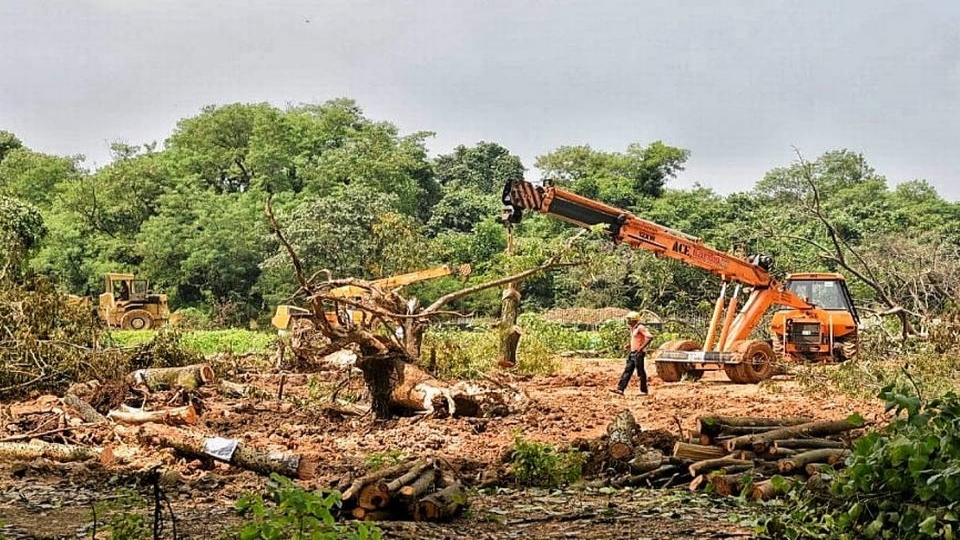On October 7, Monday, the Supreme Court of India ordered a stay on the clearing of a forest for a controversial rapid transit project in the country’s commercial capital, Mumbai. This came shortly after the government-owned infrastructure enterprise, Mumbai Metro Rail Corporation Limited (MMRCL), felled more than 300 trees to make way for a proposed train shed in the largely forested neighborhood of Aarey Milk Colony or Aarey.
The right-wing state government of the Bharatiya Janata Party (BJP) in Maharashtra State, of which Mumbai is the capital, had earmarked 65 hectares of land in Aarey, entirely within the forested part of the neighborhood, for a train shed for the under-construction Line 3 of the Mumbai Metro project.
The project itself attracted strong condemnation from the city’s residents and also the Adivasis, members of the tribal community who live in and around the forest of Aarey. Activists under the banner of Aarey Conservation Group, which includes concerned citizens, Adivasi groups and environmentalist groups like Vanashakti, have been fighting a long-drawn legal battle for the past two years to prevent the clearing of the forests.
Thousands of protesters have also been periodically demonstrating and organizing vigils at the construction site for the past seven weeks as the legal battle went on. According to the Aarey Conservation Group, close to 3,000 people have volunteered for a chipko action, a protest technique where an individual hugs a tree to prevent it from being cut down.
Earlier, activists had secured a key legal victory that stayed the MMRCL from cutting trees until September 28 at the Bombay High Court, but refused to extend the stay in the next hearing held on September 30, even as the case against the shed continued. According to activists, the MMRCL began clearing the forest in the dead of night on October 4, Friday. This attracted strong reactions from dozens of activists who tried to disrupt the felling, and if possible stop it.
29 of them were arrested by October 5, on charges of trespassing, obstruction and even assault, and were detained. The petitioners later approached the Supreme Court, which ordered the detainees to be released immediately after signing the required bail bond, on October 6.
On October 7, the same bench, which included the Chief Justice of India, enforced another stay in an urgent hearing putting a halt to any further construction work until the next hearing on October 21. The bench even deemed the action “illegal” as the MMRCL took drastic action on a matter that was subjudice.
The stay was not comforting to the petitioners or the activists, as the solicitor general for the Maharashtra State stated in the court that the area that was needed for the train shed had been cleared by October 5.
The controversial train shed construction has been called out by activists as a smokescreen to facilitate the gradual deforestation of the city’s protected forests. The forests in Aarey, which includes the floodplains of the city’s largest river, Mithi, have become a major political matter for the city that suffered multiple floods on the river this monsoon. Activists have pointed to indiscriminate dumping of construction debris and wastes on the floodplains adjacent to Aarey as a major cause for the floods that occurred downstream.
Activists at Aarey Conservation Group have claimed that the construction will destroy the forest biosphere, an extension of Sanjay Gandhi National Park, the world’s largest forest within city limits. This they have added will only help the city’s infamously predatory construction lobby, many of whom serve as state legislators or patronize various political parties and politicians, including the ruling BJP.





